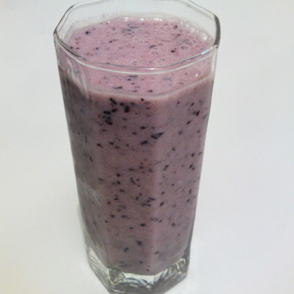Inulin

Important inulin facts
Inulin is form of soluble fibre that can be found in many plants. Inulin's fibre content helps the body increase its fibre content.
The bacteria in your gut bacteria converts inulin and other prebiotics into short-chain fatty acids, which help to nourish colon cells and keep the gut healthy.
- Inulin is a prebiotic
- Inulin is a fibrous carbohydrate classed as a starch
- Inulin is added to many health food bars
- Inulin naturally exists in many plant foods, such as asparagus, Jerusalem artichoke, garlic
- Inulin found in pulses such as lentils and chickpeas
Inulin and health
- Gut health - several studies have shown that inulin helps to promote good digestive health
- Gut bacteria - studies show that inulin helps to promote good bacteria, which in turn help to ensure a healthy digestive system
People who wish to take an acidophilus supplement should talk to a medical professional BEFORE taking it.
Inulin recommended intake
Dosage of inulin depends on the condition that is being treated. A medical doctor and/or alternative health care provider can advise on individual cases - this information is provided as a guide only:
| Lifestage | Age | Amount (per day) |
|---|---|---|
| INFANTS | 0-12mths | Not recommended |
| CHILDREN | 1-8yrs | Not recommended |
| CHILDREN | 9-18yrs | Seek medical advice on dosage before taking it |
| ADULTS | 19-50yrs |
Gut health 5g powder |
| SENIORS | 51+yrs | Gut health 5g powder |
| PREGNANT | Seek medical advice on dosage before taking it | |
| LACTATING | Seek medical advice on dosage before taking it |
Advertisement
Types of inulin supplements
Inulin supplementation is available in the following ways:
- Capsules - inulin powder is added into capsules
- Tablets - inulin powder is compressed and formed into a tablet
- Powder - inulin is dried, crushed and made into a powder
Inulin supplementation checklist
- Take inulin with food to help with digestion
- Benefits of inulin are more noticeable when taken over a long period of time
- Tablets are a convenient and quick way of getting inulin
- Inulin powder can be taken if a more controlled or lower dose is required to start
Inulin works best with
Overdosage, toxicity and cautions for inulin
Generally inulin rarely has side effects if used at the recommended dosage. Some of the common (and mild) side effects that have been reported are:
- gas (flatulence)
- bloating
- abdominal pain
No information on overdosage is available.
Cautions
People allergic to ragweed - may experience a severe allergic reaction (anaphylaxis) so caution is advised
Advertisement
References
- Busci L, Poor G. Efficacy and tolerability of oral chondroitin sulfate as a symptomatic slow-acting drug for osteoarthritis (SYSADOA) in the treatment of knee osteoarthritis. Osteoarthritis Cartilage. 1998;6(suppl A):31-36
- Groff J L, Gropper SS, Hunt SM, Advanced Nutrition and Human Metabolism. West Publishing, USA, 1995
- McAlindon TE, LaValley MP, Gulin JP, Felson DT. Glucosamine and chondroitin for treatment of osteoarthritis: a systematic quality assessment and meta-analysis. Journal of Americal Medical Association. 2000 15;283(11):1469-75
- Reginster JY, Deroisy R, Rovati L, et al. Long-term effects of glucosamine sulphate on osteoarthritis progression: a randomised, placebo-controlled clinical trial. Lancet 2001;357:251-6
- Rovetta G, Monteforte P, Molfetta G, Balestra V. Chondroitin sulfate in erosive osteoarthritis of the hands. Int J Tissue React 2002;24:29-32
- Thie NM, Prasad NG, Major PW. Evaluation of glucosamine sulfate compared to ibuprofen for the treatment of temporomandibular joint osteoarthritis: a randomized double blind controlled 3 month clinical trial. J Rheumatol 2001;28:1347-55
Last reviewed 21 April 2019

 Basics recipes
Basics recipes Breakfast recipes
Breakfast recipes Dessert recipes
Dessert recipes Dinner recipes
Dinner recipes Lunch recipes
Lunch recipes Snacks recipes
Snacks recipes



